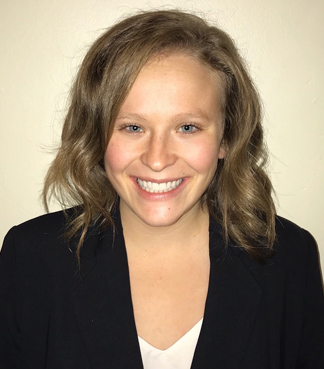
Hometown: Downingtown, Pa.
Undergraduate: University of Pittsburgh - BS in Biological Sciences
Can you tell me a little bit about yourself before you came to Drexel?
I graduated from the University of Pittsburgh in 2019. I was fortunate enough to spend the summer after I graduated from Pitt backpacking through Europe. I then moved to Philadelphia and began working as a scribe at the Children’s Hospital of Philadelphia and as a server at a local restaurant until I started medical school this fall.
In my free time, I enjoy being outdoors, doing things such as hiking, kayaking and exploring the city. I also love playing sports; I participated in recreational soccer and basketball from college until the start of the COVID-19 pandemic.
What drew you to medicine in general, and to the College of Medicine specifically?
What drew me to medicine was the desire to provide others the comfort that countless physicians have provided to me throughout my life. What drew me specifically to the College of Medicine was the curriculum.
Having time for myself, and to exercise or spend time with my family and friends, was a priority for me when choosing a medical school; Drexel’s curriculum is set up in a way that not only allows me to do these things, but also encourages it. We study about 50 percent of the first- and second-year curriculum through independent learning, and there is at least one day a week where we have no formal lecture. I feel as though I have enough structure to stay on track, but also the flexibility to form my own schedule and have time for hobbies and relaxation.
How did your undergraduate studies and work experience prepare you for medical school?
I took some classes in undergrad that were not required for my major, such as Anatomy, Physiology, Medical Terminology, Introduction to Neuroscience, and few others. The background that I gained from these courses made the transition to the material taught in medical school a lot easier. So far, I am very glad that I chose to put in more effort in undergrad than I needed to. Drexel provides you with more than enough resources to succeed without having any of this background but knowing some baseline information coming in has definitely helped me to adapt.
Additionally, my scribe work taught me a lot about how to talk to patients and about the flow of a patient encounter. Scribing helped me significantly in the Foundations of Patient Care class, where medical students learn to take a patient history and perform a physical exam.
What organizations, extracurriculars, research or community service experiences have you been involved in at Drexel? How have they impacted your experience here?
I have only been at the College of Medicine for three months but have already had countless opportunities to be part of the community. There is a club at Drexel for almost any interest you have. So far, I have joined the yoga club, which meets over Zoom every Tuesday. When the recreational soccer and basketball clubs are allowed to meet again, after the COVID-19 pandemic, I plan to join both.
I have participated in Health Outreach Project (HOP) student-run clinics, which give students opportunities to volunteer at free clinics and medical centers throughout the city. Most HOP clinics are currently running via tele-health but volunteering virtually has still been a beneficial experience. I have gotten to practice taking a patient history and work with patient populations that I didn’t have much experience with, all while helping out the Philadelphia community.
I have joined a few medical specialty interest groups. Most of them have hosted guest speakers, usually a physician in that specialty, to give virtual talks and answer students’ questions about their work. This has allowed me to learn about many different medical specialties from people with firsthand experience.
Lastly, I am a part of a program through Drexel that pairs you with an older adult mentor in the community; my mentor and I talk on the phone a few times a month, and already it has been a rewarding experience to get to know someone who I would have otherwise probably never encountered. It has been great to learn about her life and how she ended up where she did.
What advice would you give incoming medical students?
Don’t be nervous; you are here for a reason. You would not have been accepted into medical school if the admissions team did not know, without a doubt, that you can succeed.